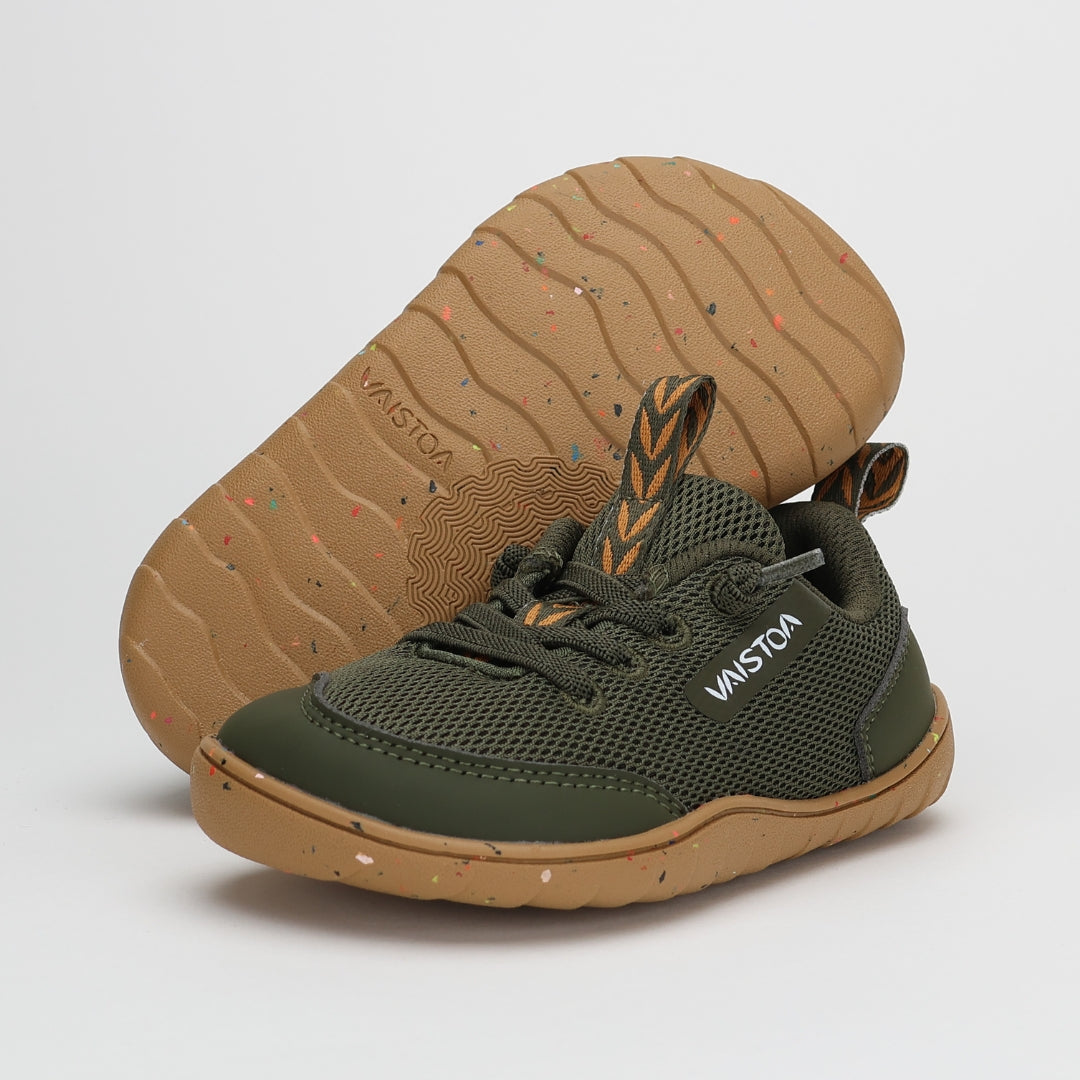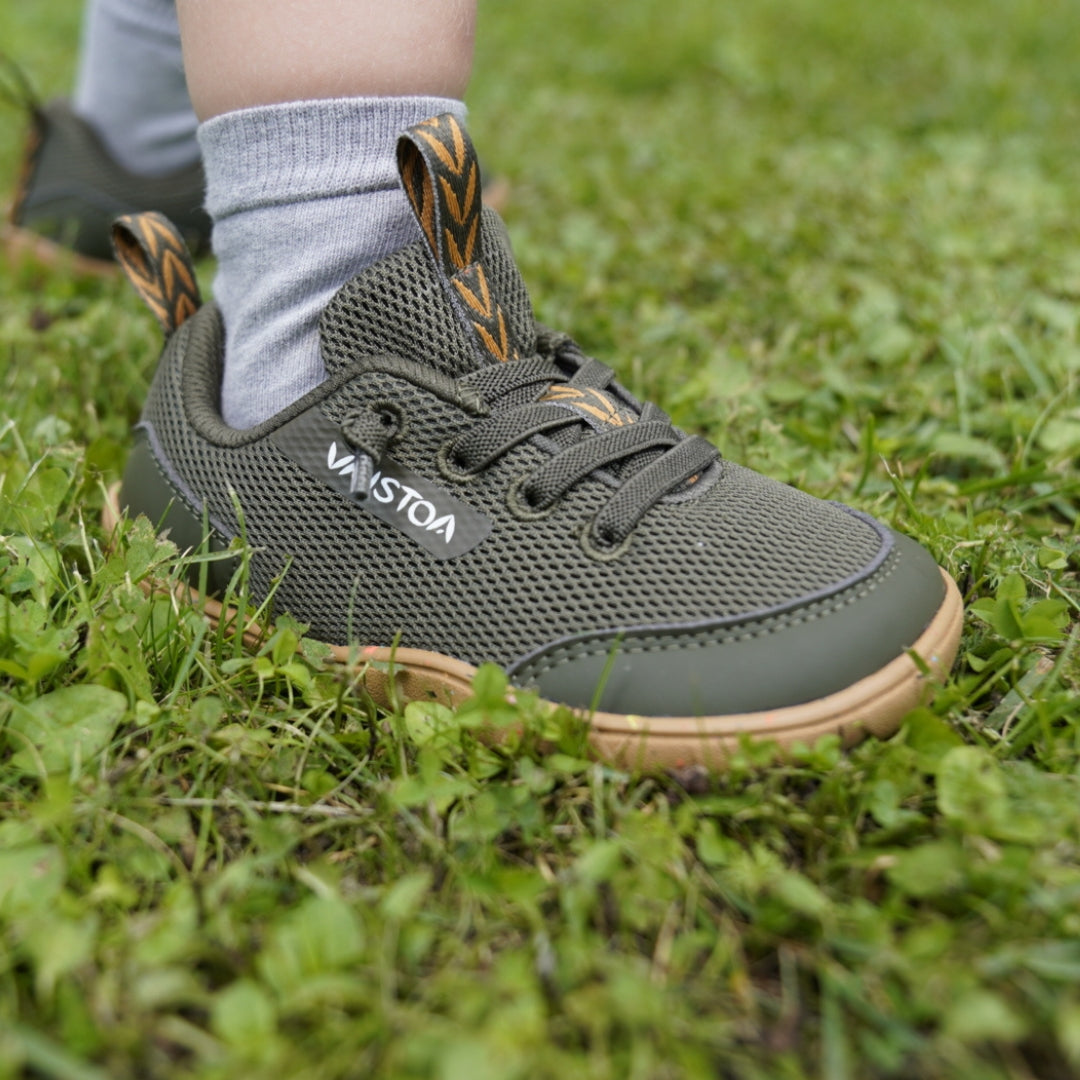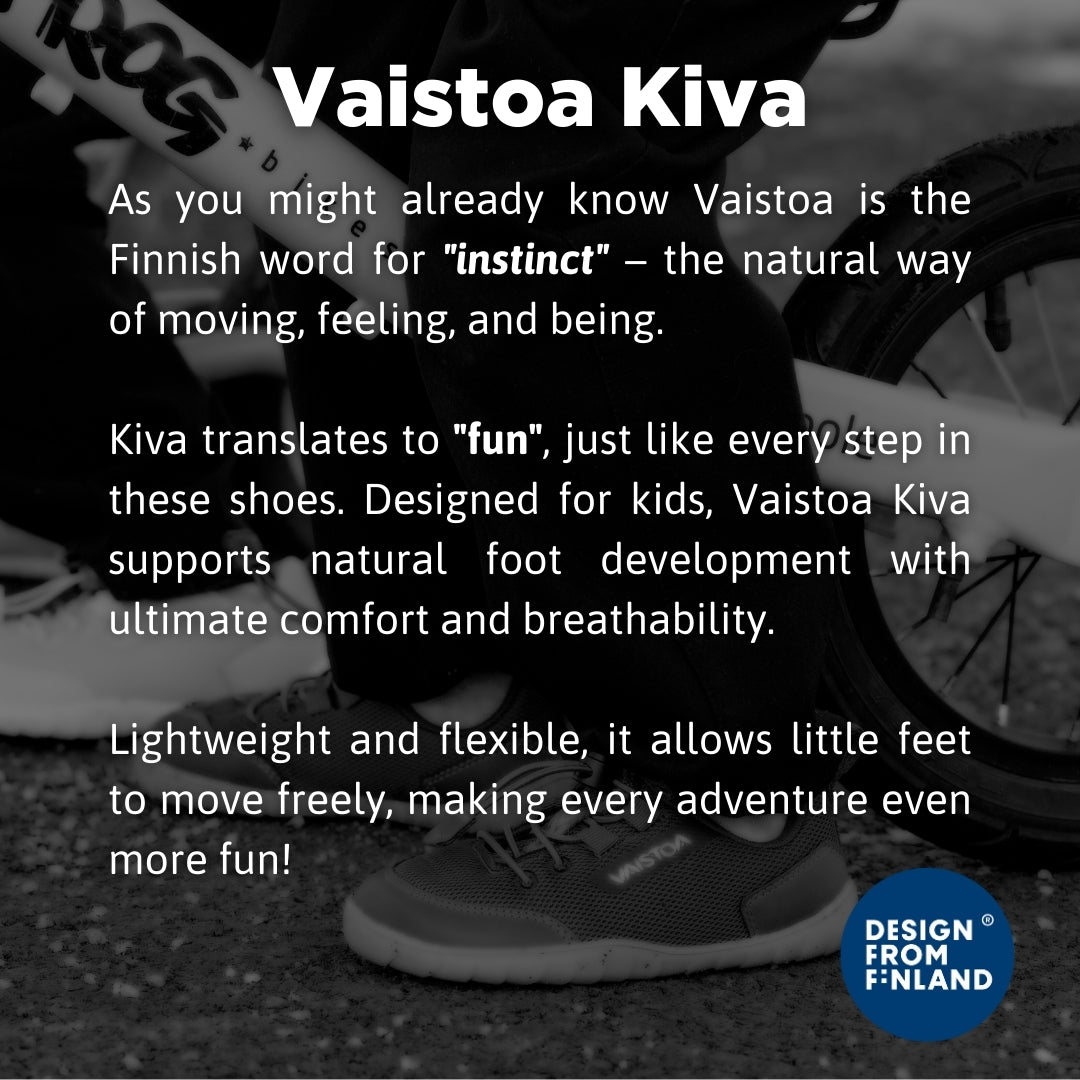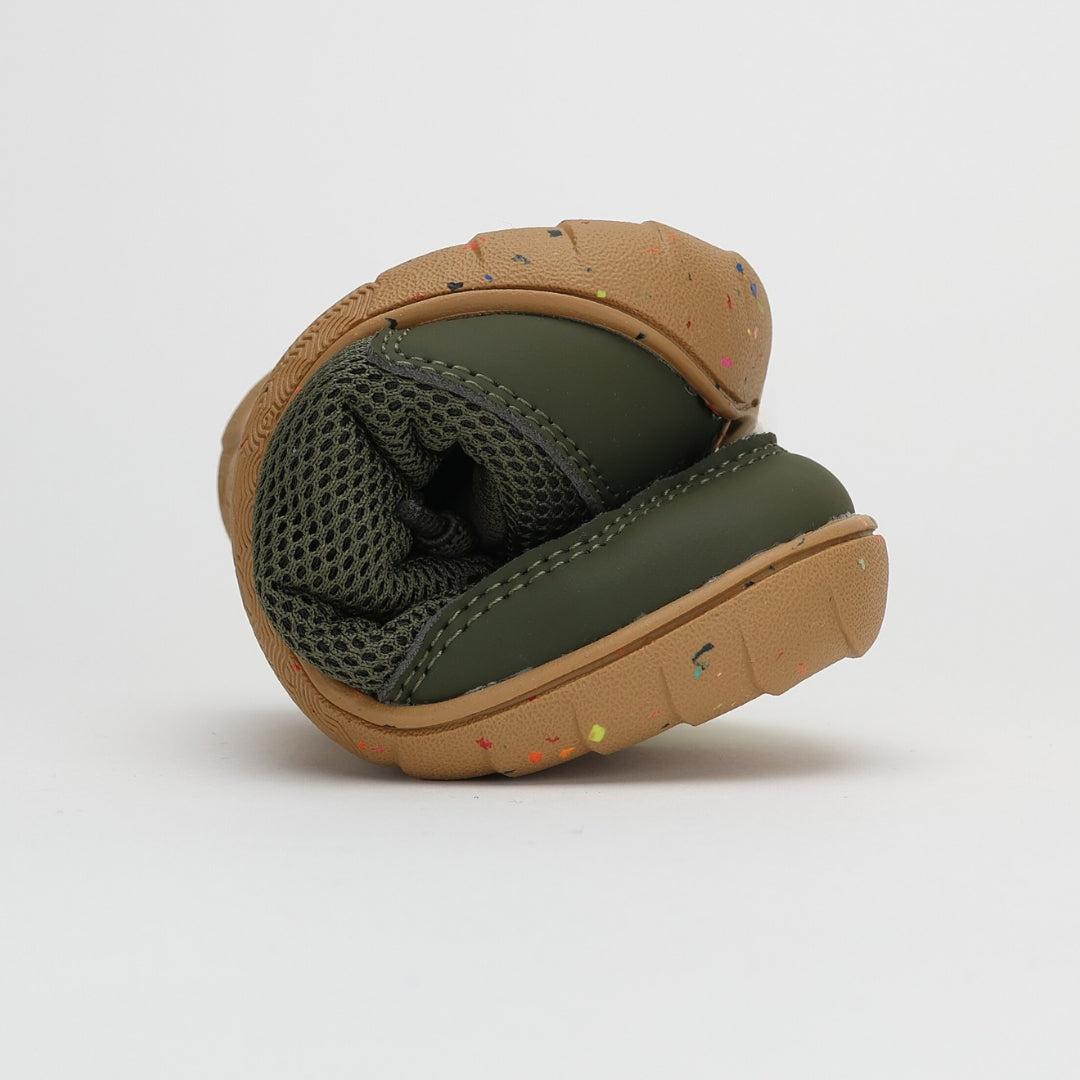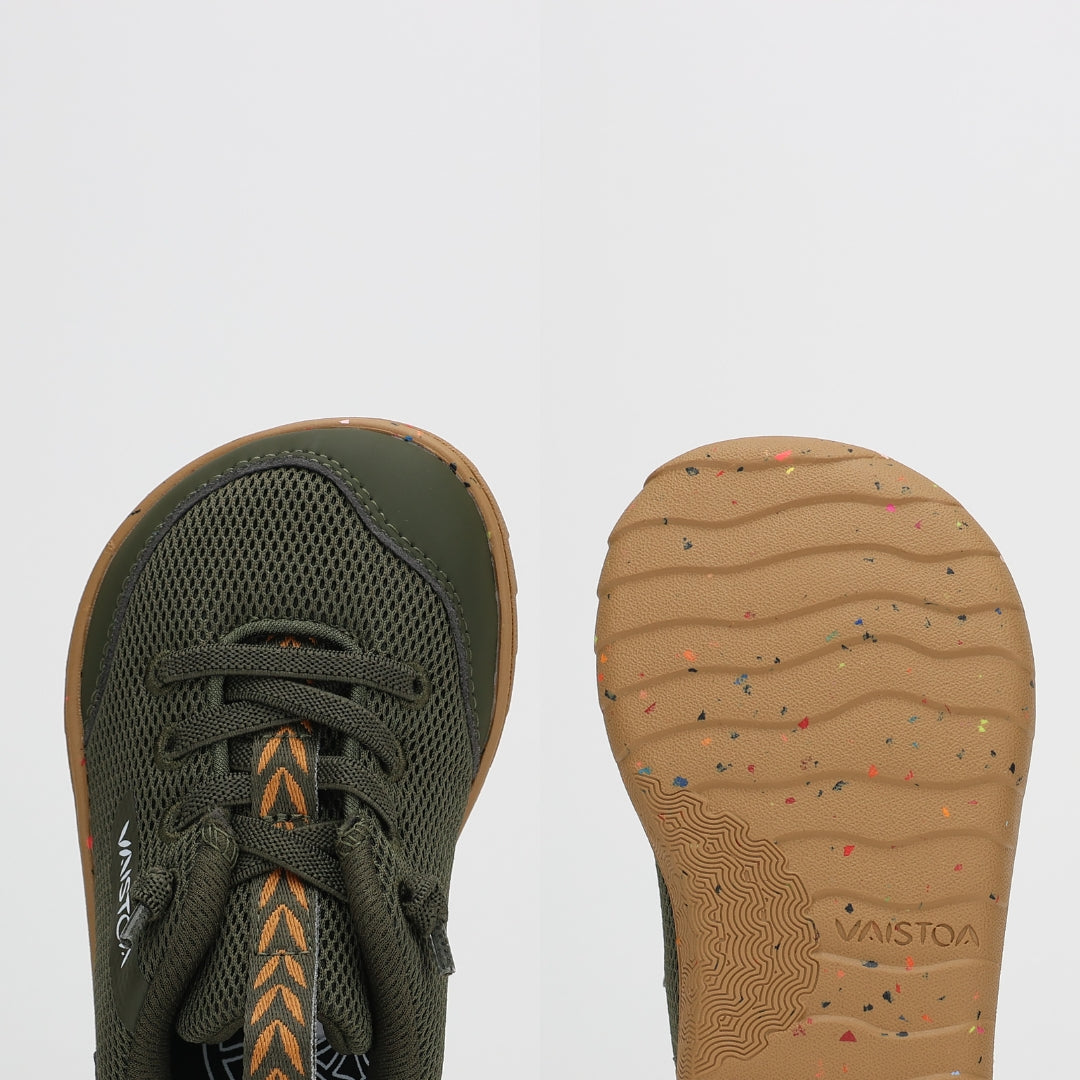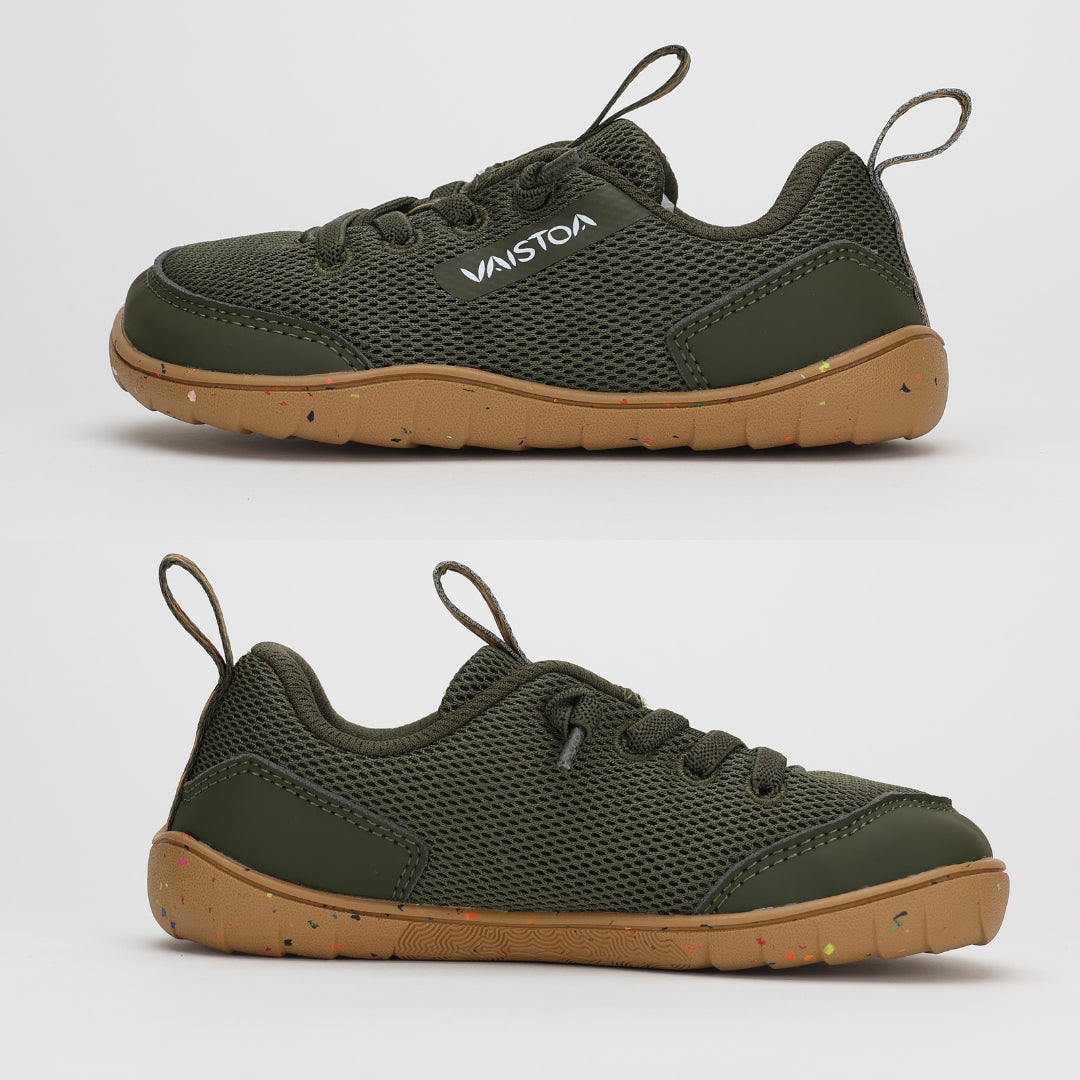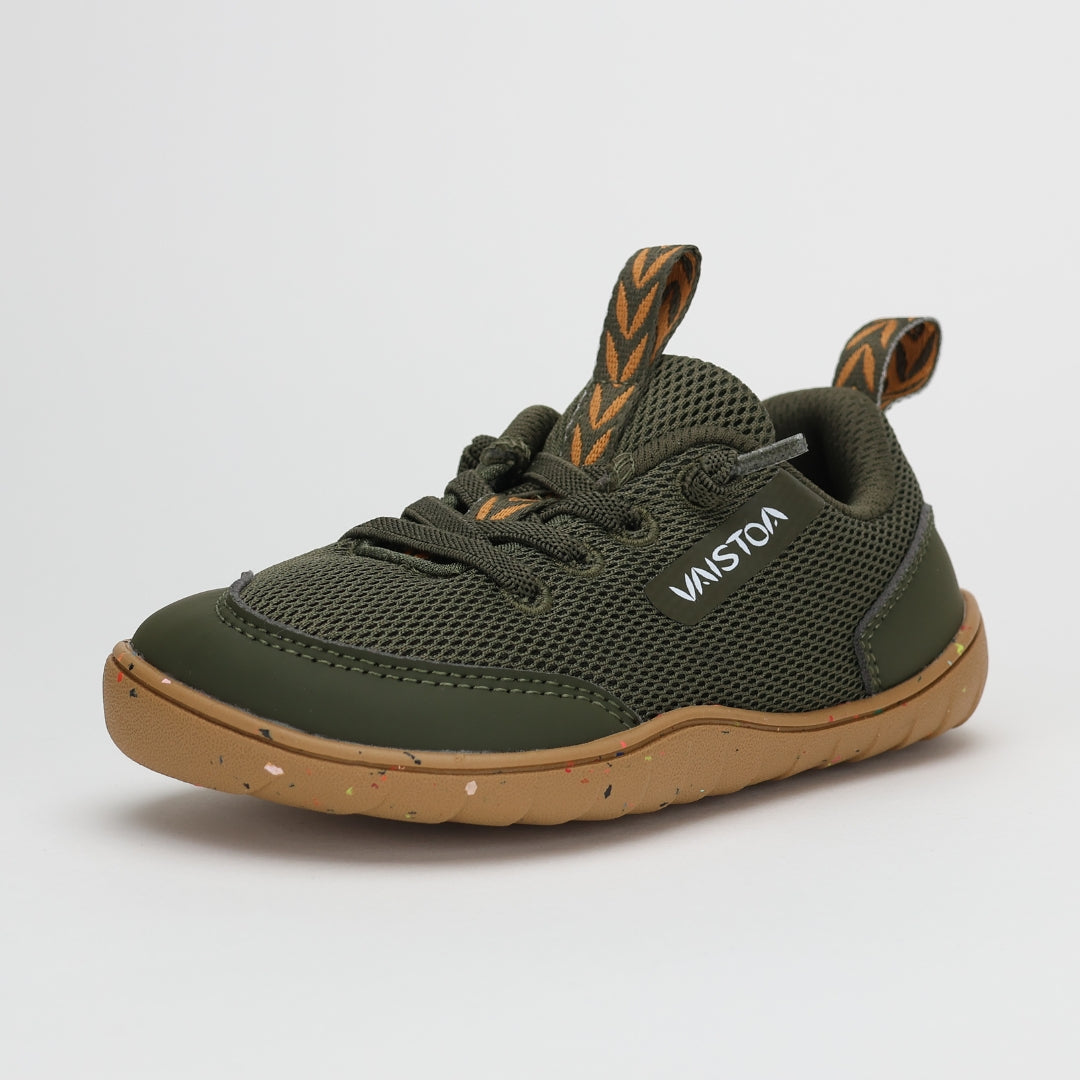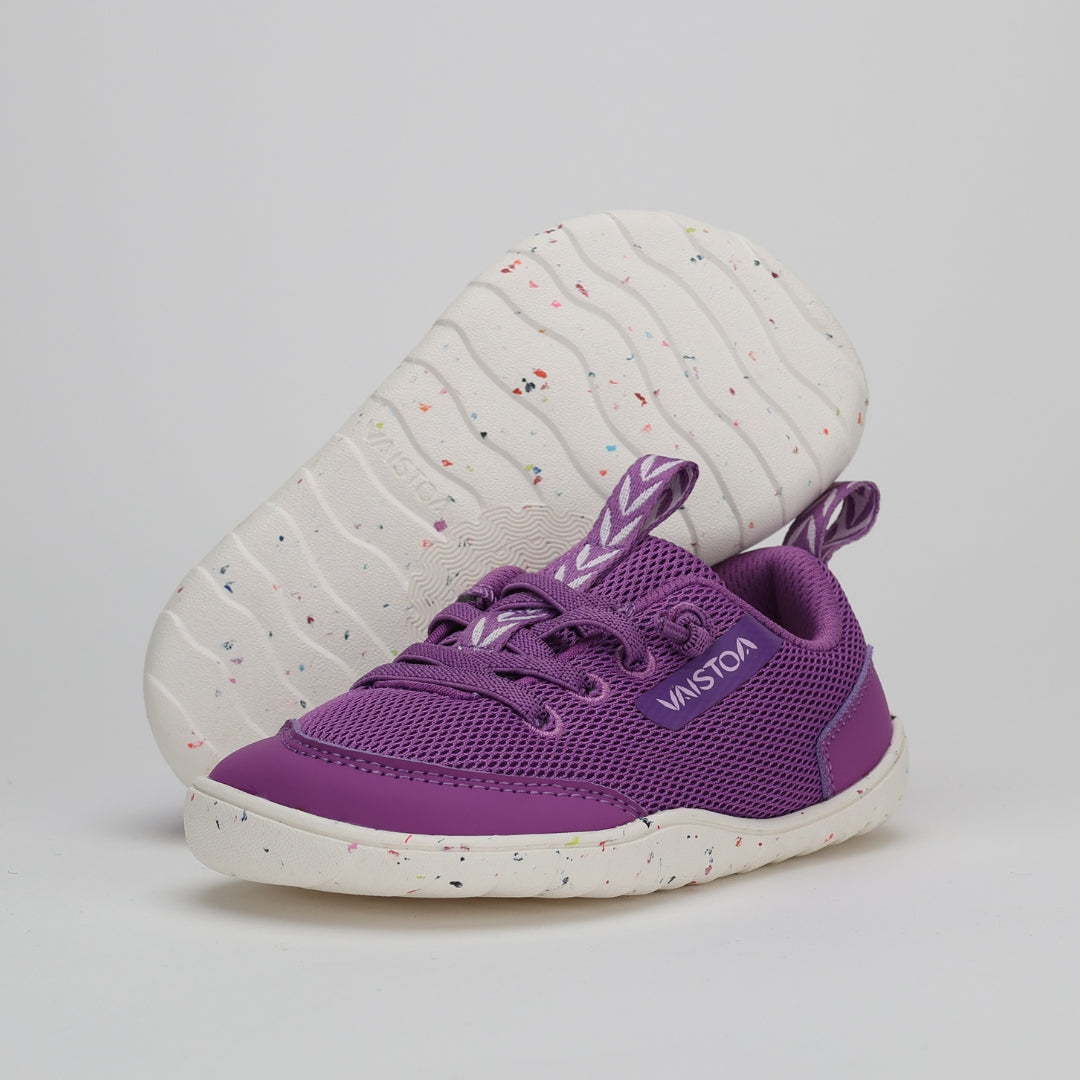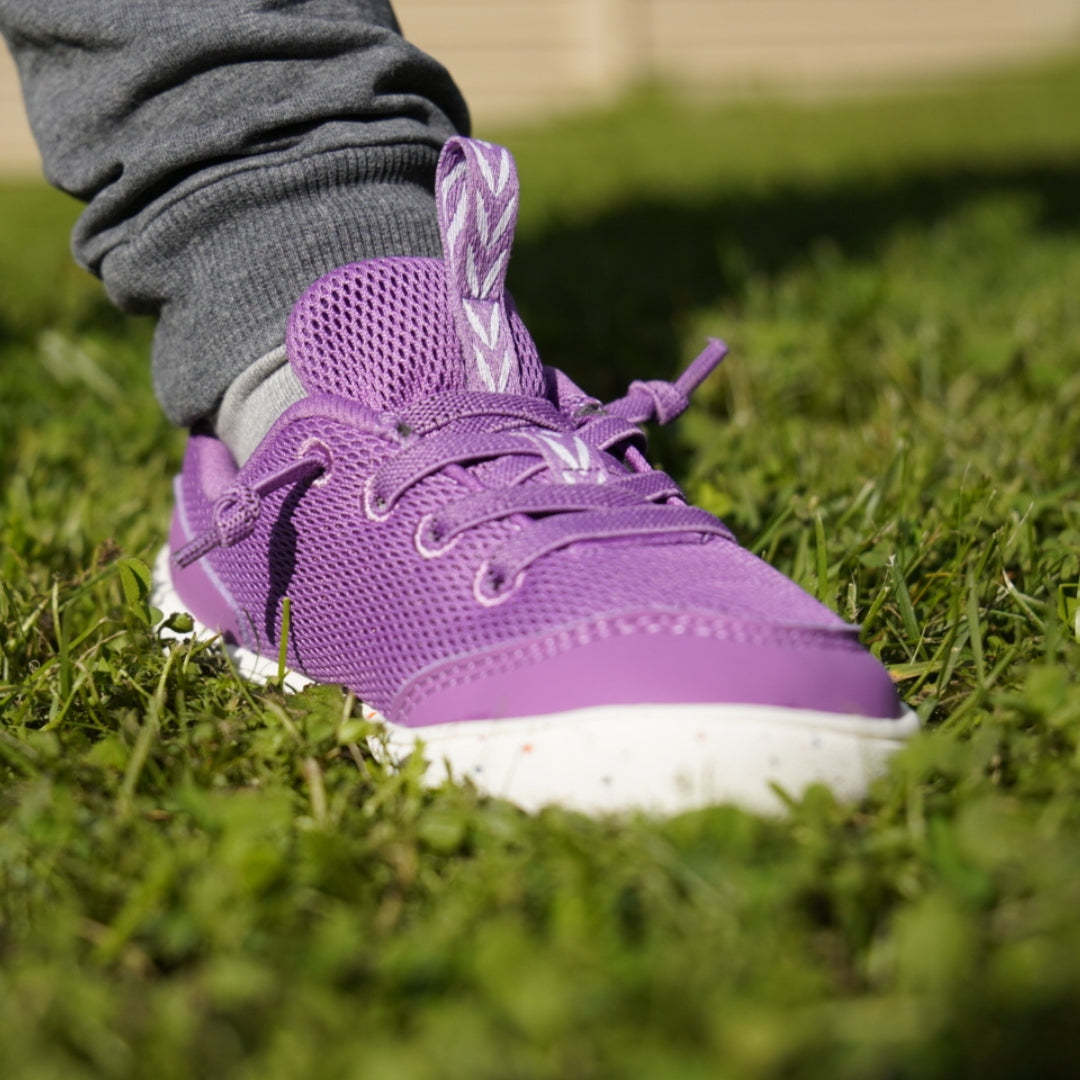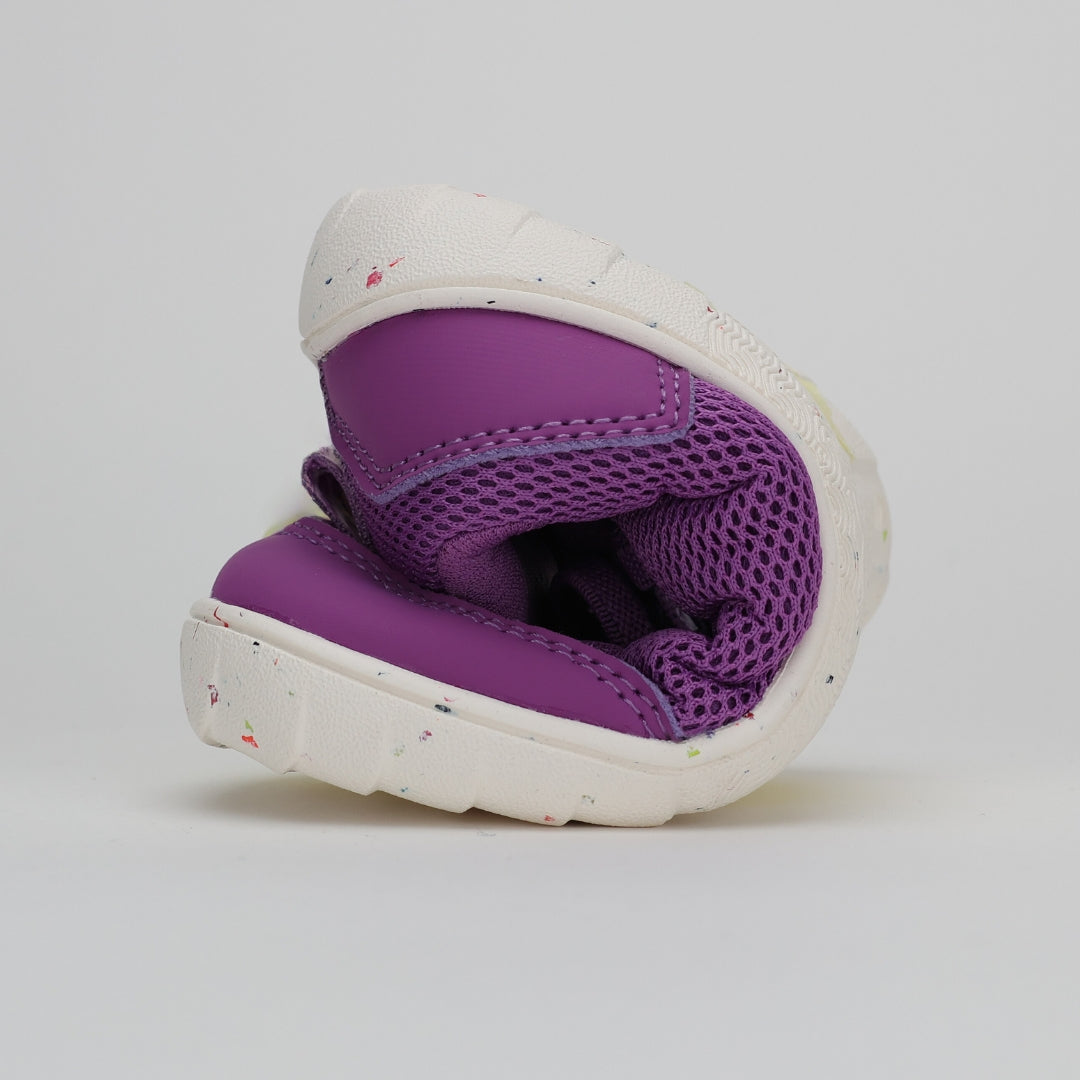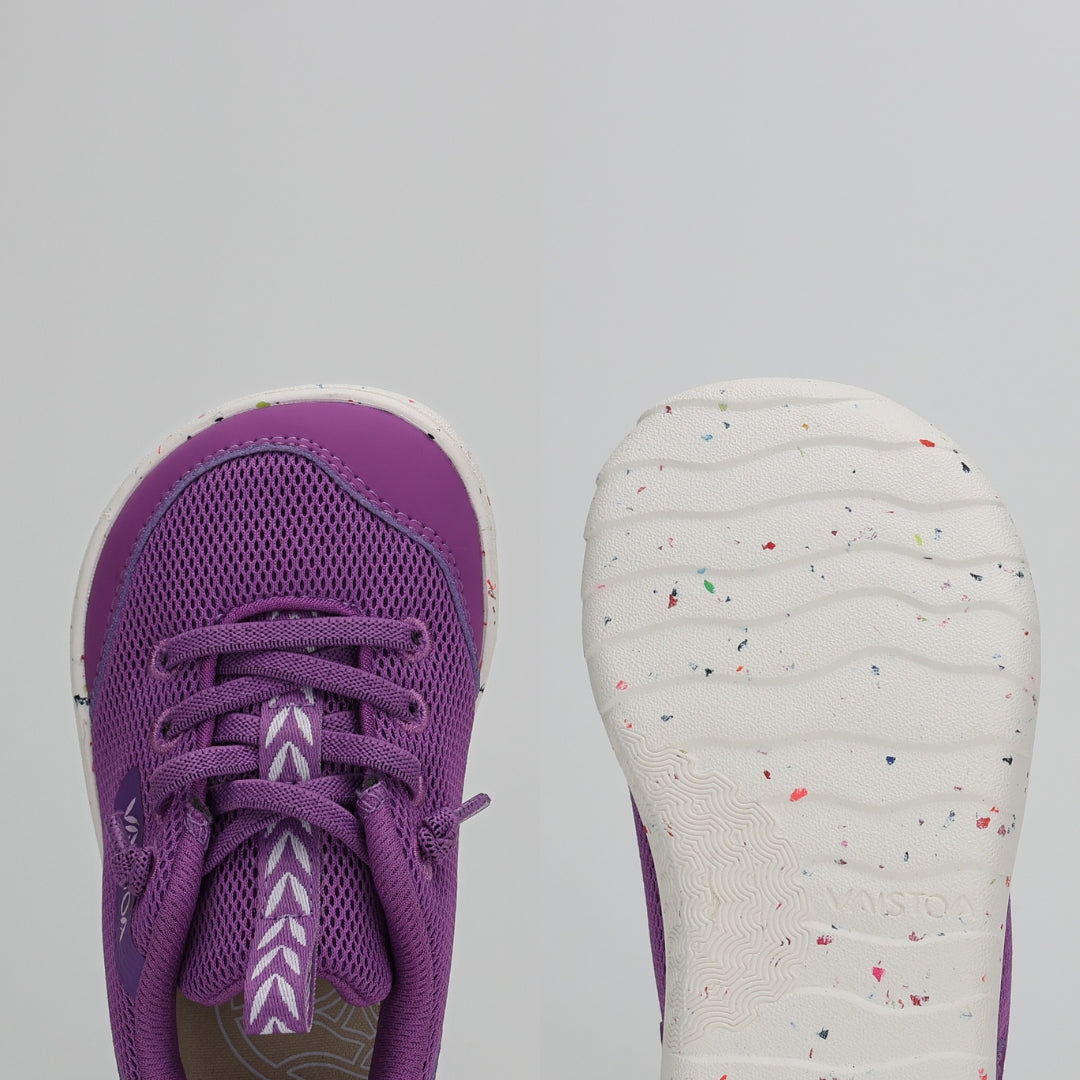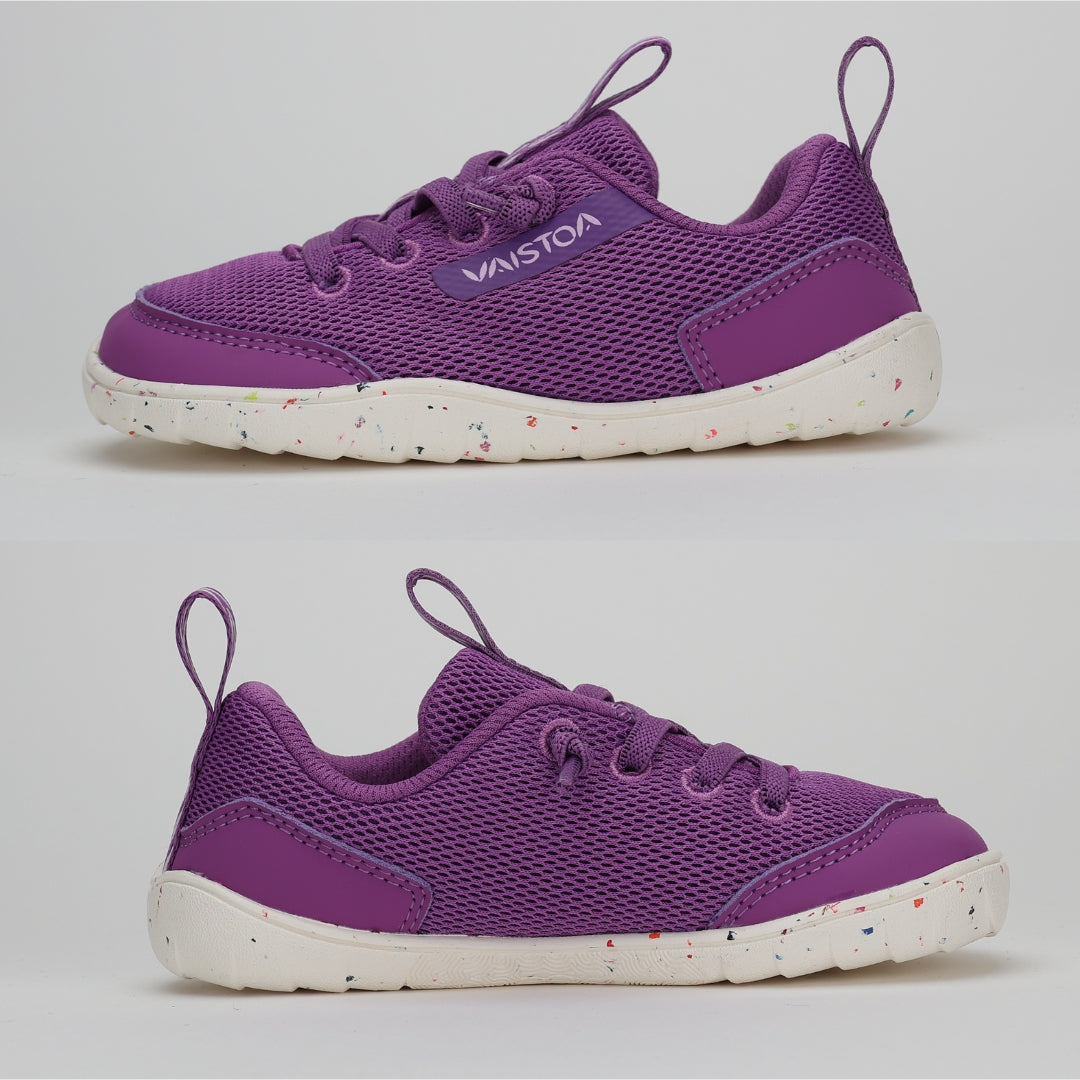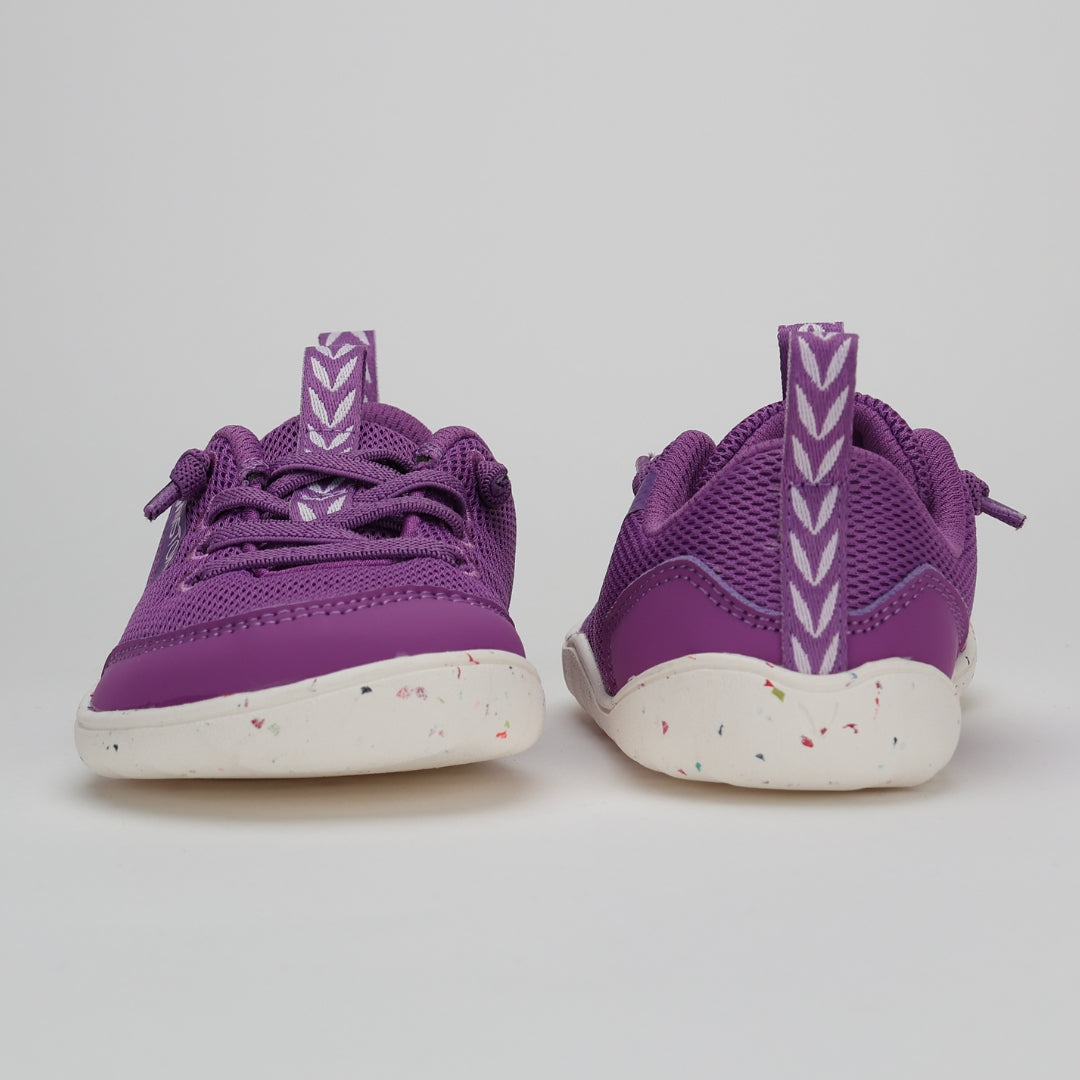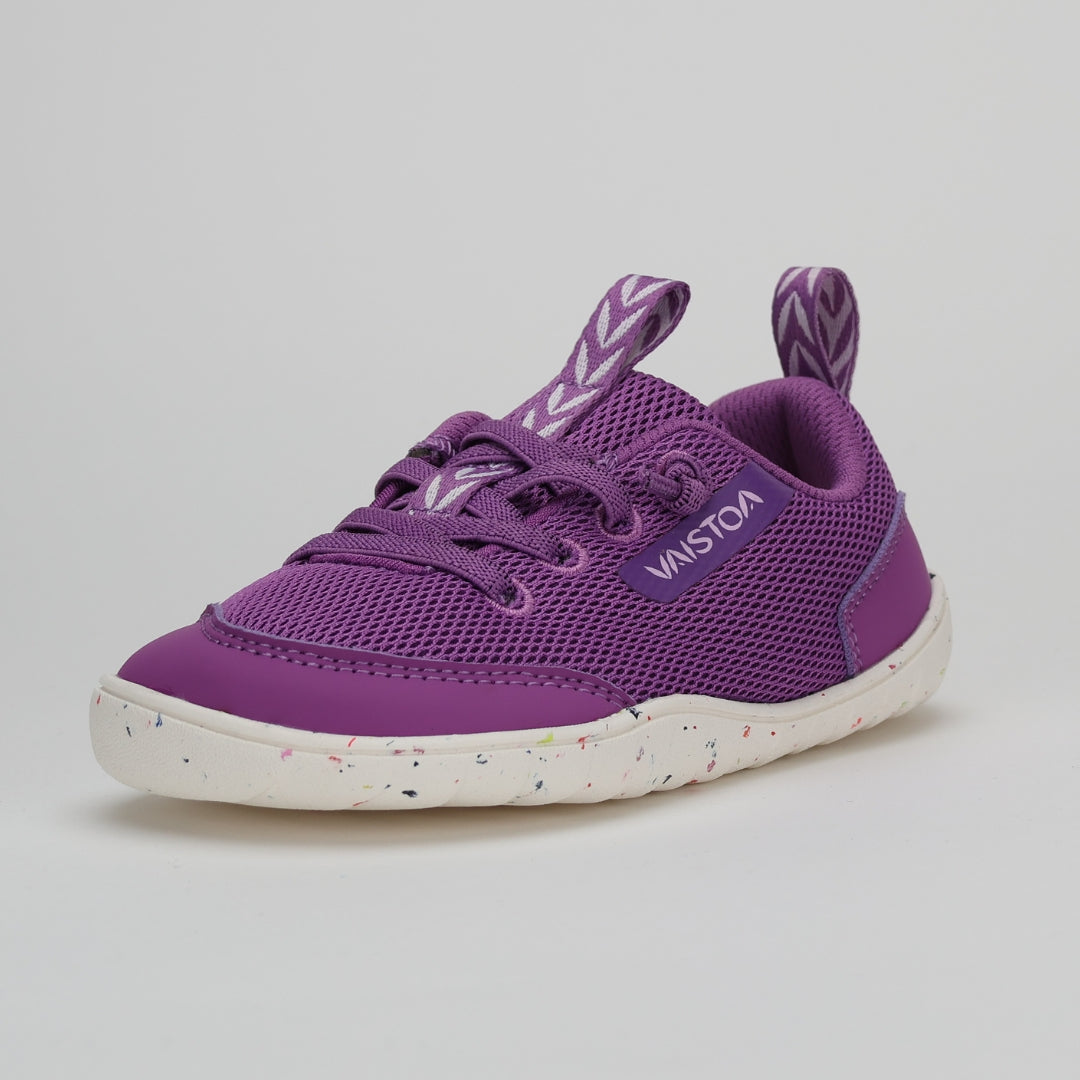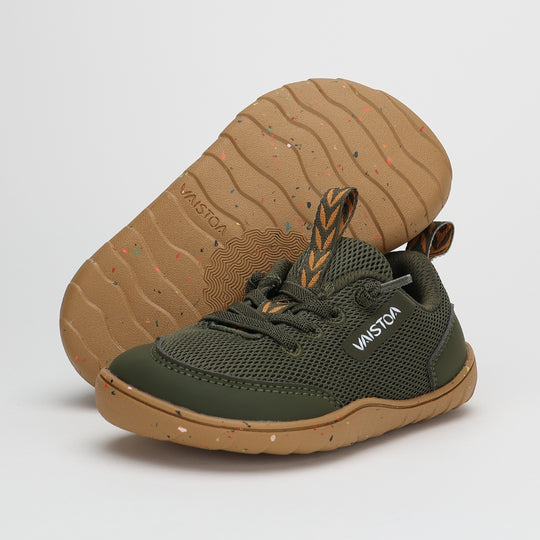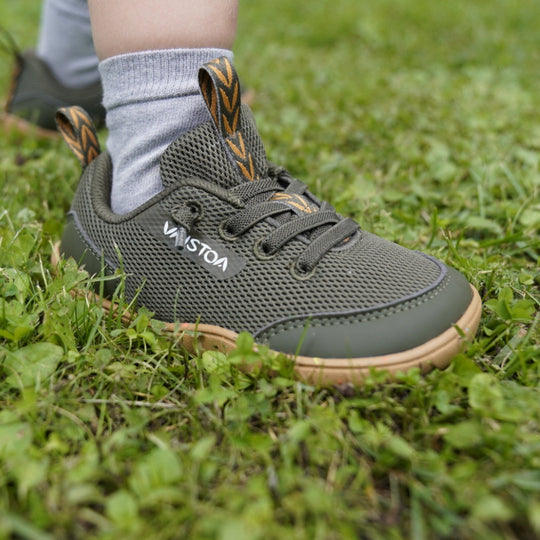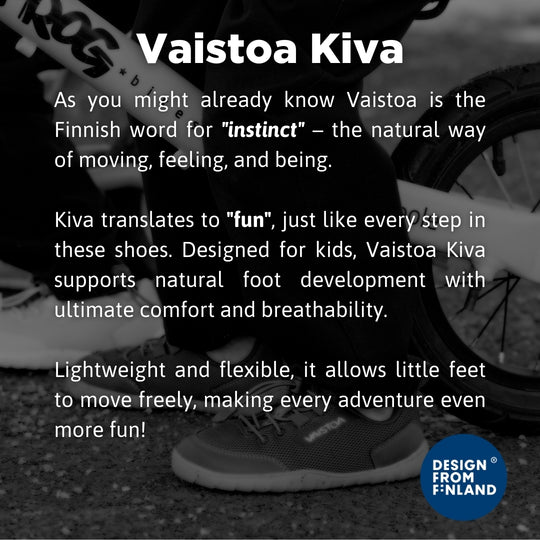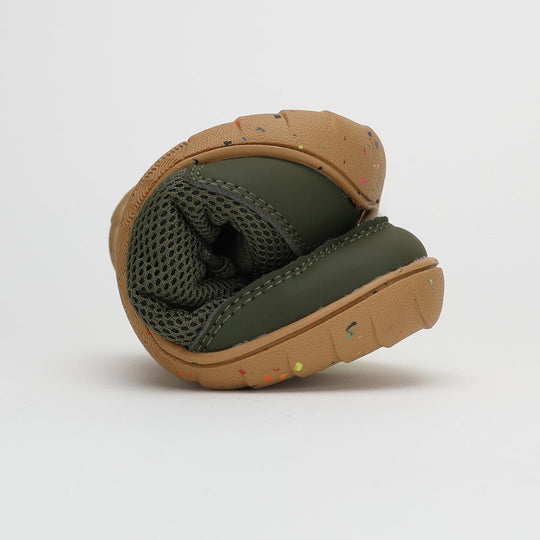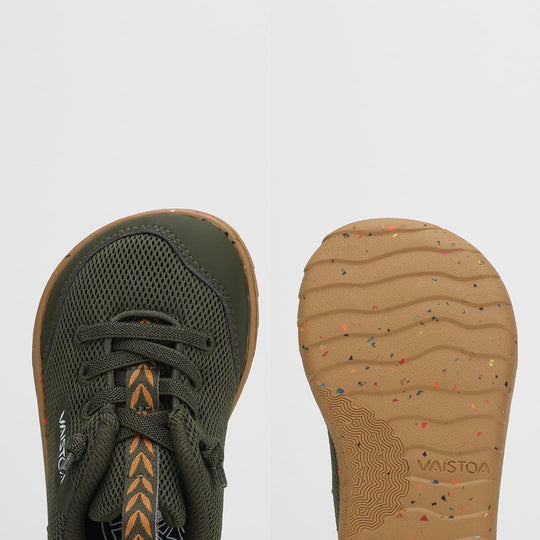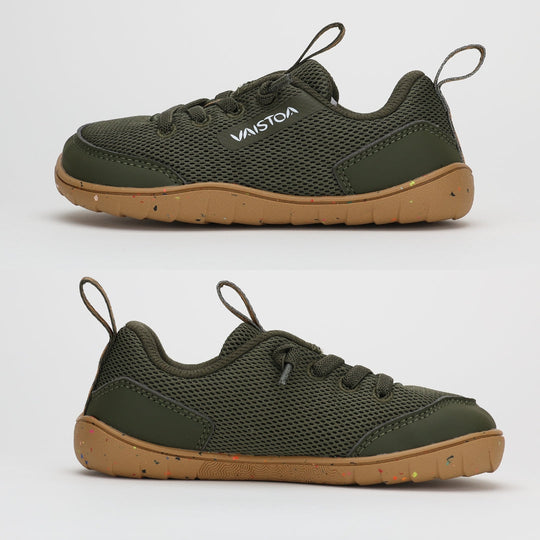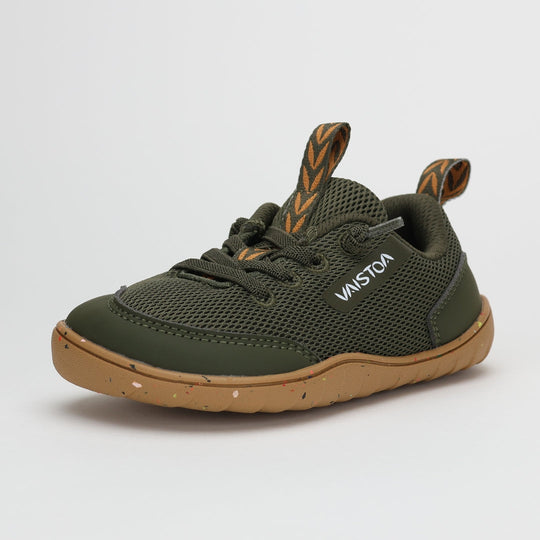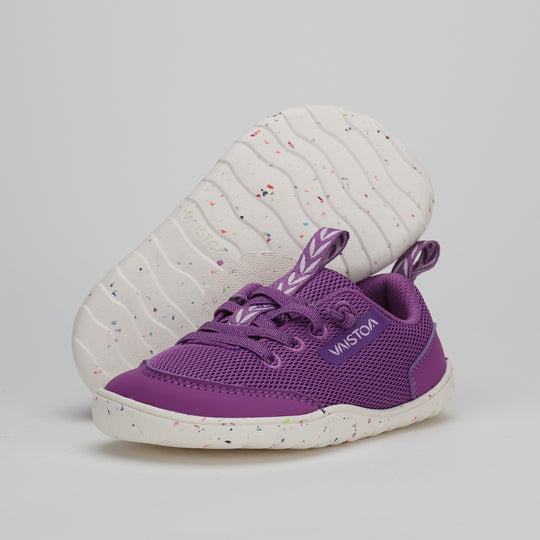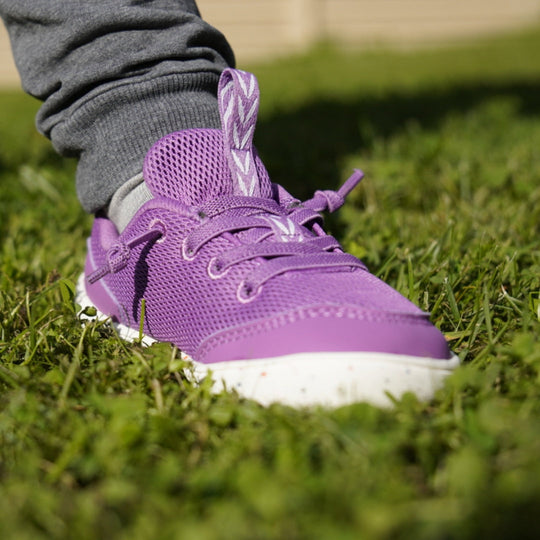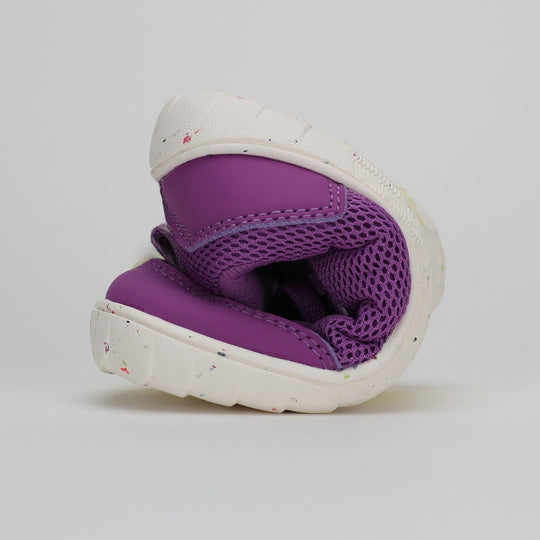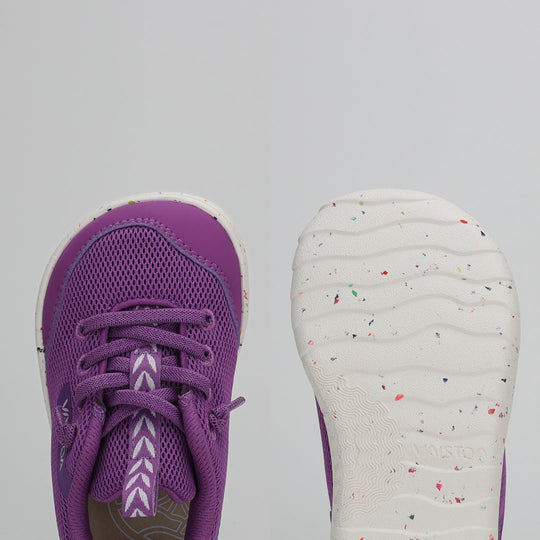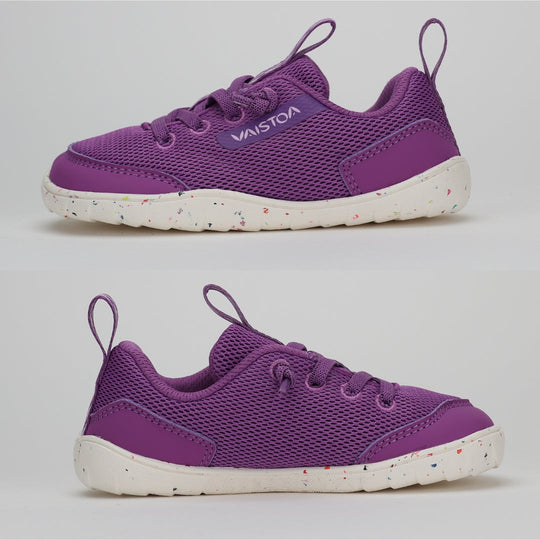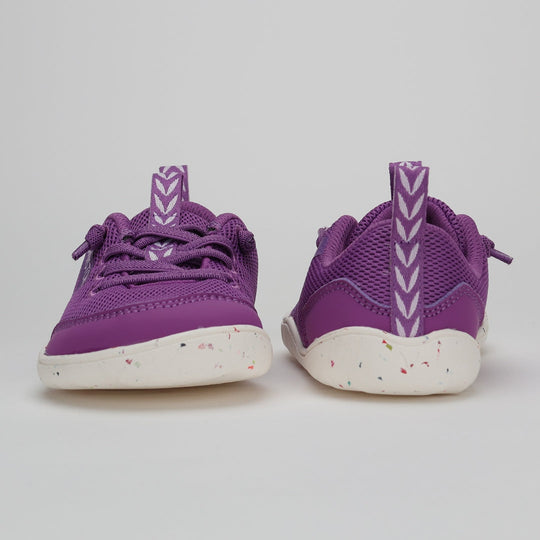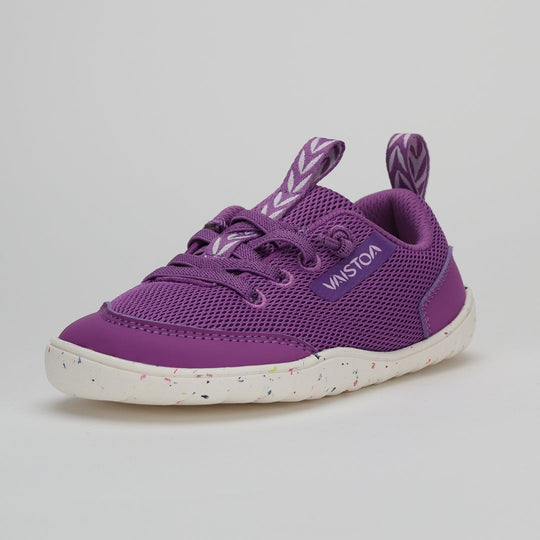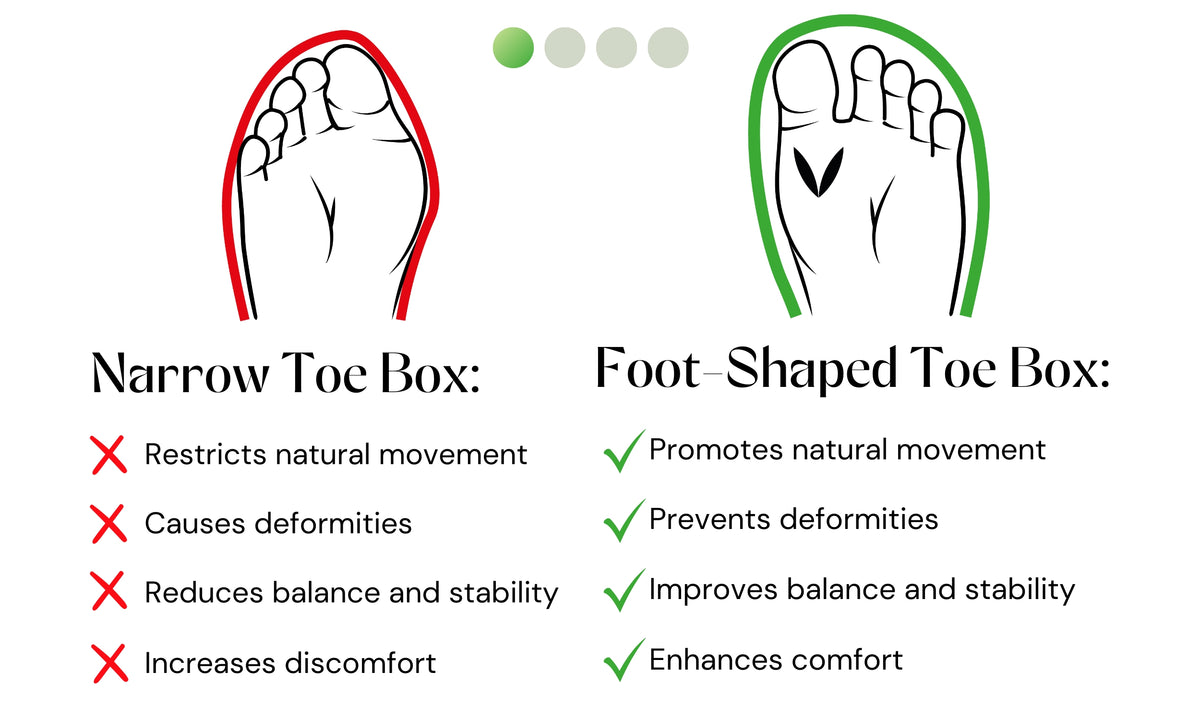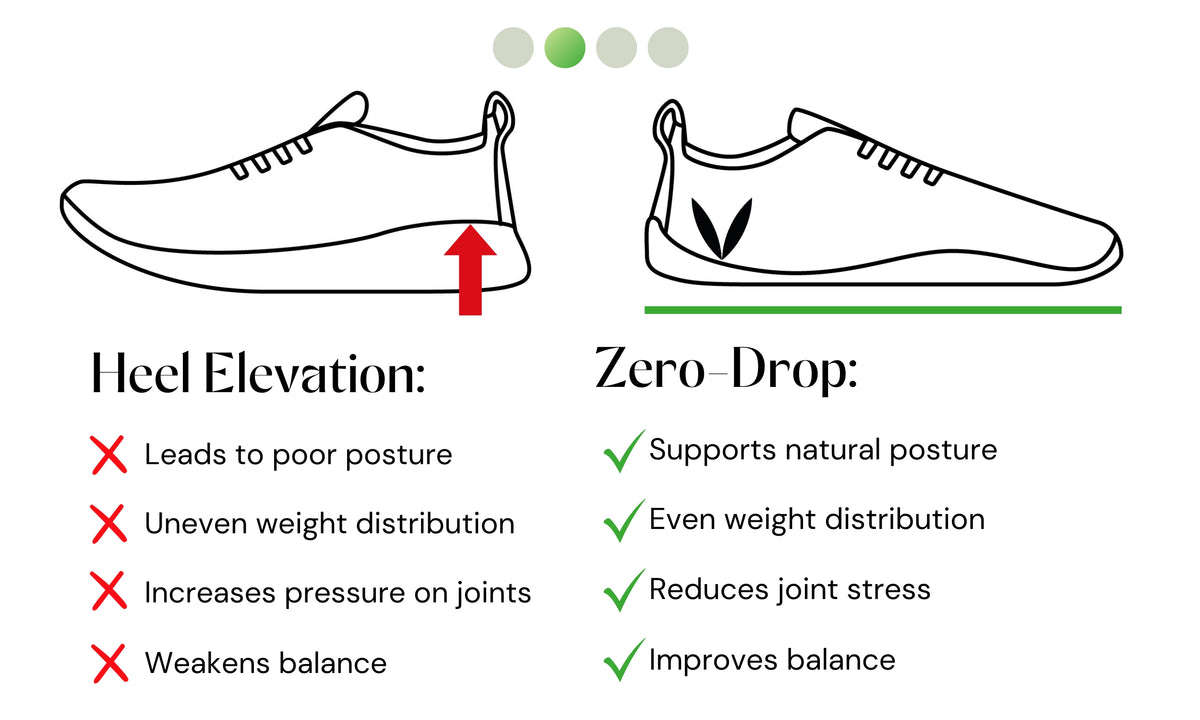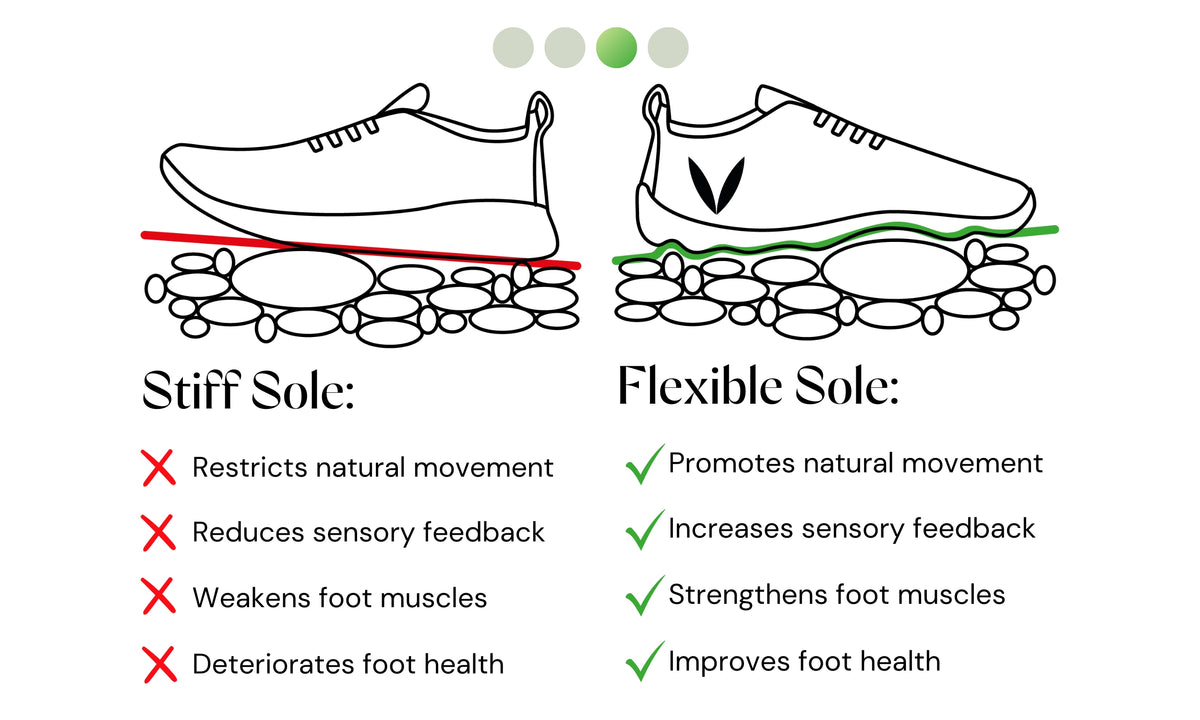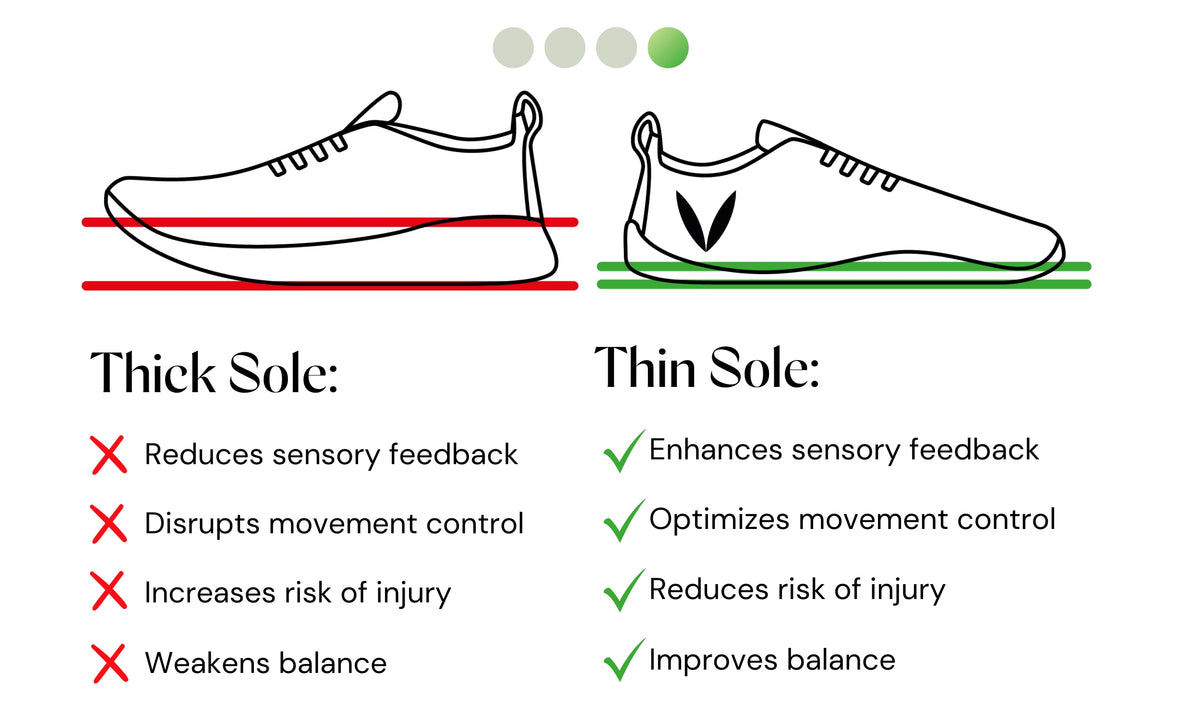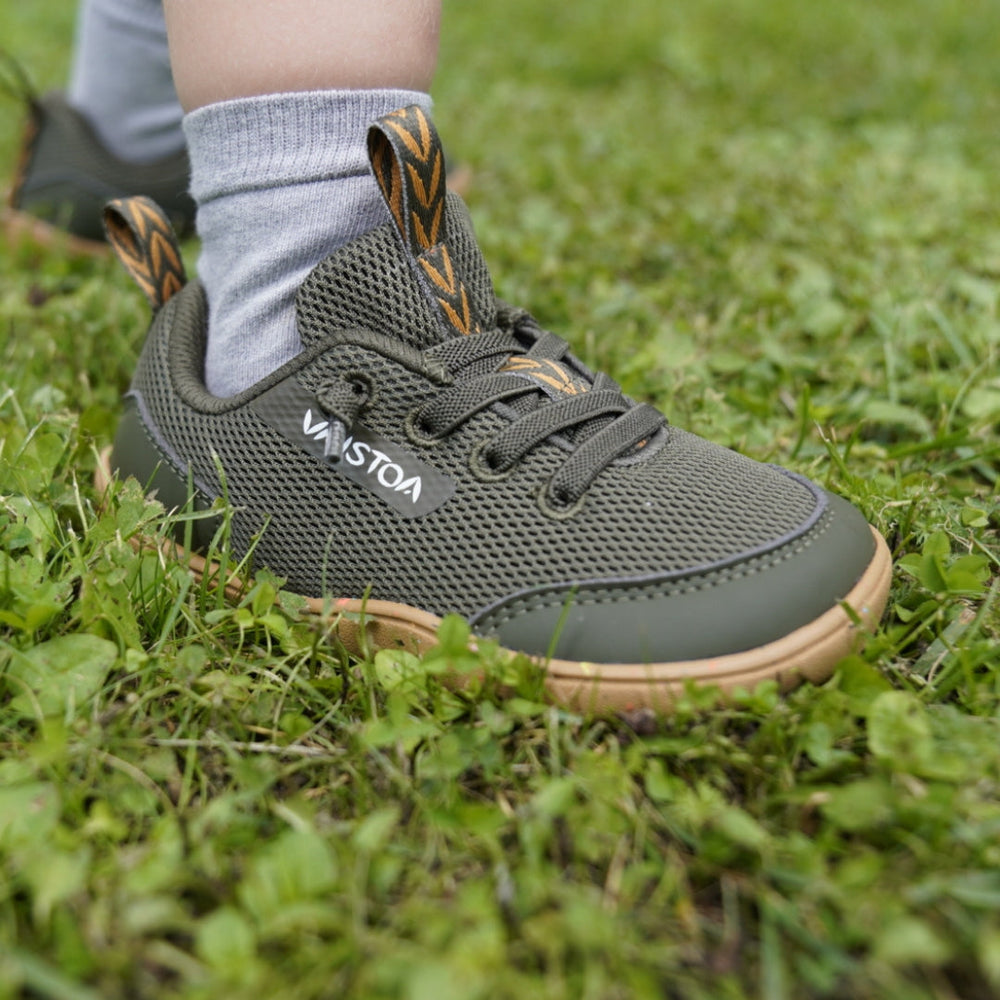Unleash the Joy of Movement with Vaistoa Kiva Kids Mesh Barefoot Sneakers
Designed for kids who are always on the move, the Vaistoa Kiva Mesh Barefoot Sneakers offer the perfect blend of comfort, flexibility, and breathability. These shoes feature a wide toe box and a thin, flexible sole to support natural foot movement, helping your child's feet develop healthily. The lightweight mesh upper keeps little feet cool and comfortable all day long, whether they're playing in the park or heading on a summer adventure.
Perfect for active children who value freedom of movement, Vaistoa Kiva Kids sneakers ensure every step is a comfortable and enjoyable experience. Let your child experience the joy of natural movement with Vaistoa Kiva.
We offer a 90-day FREE return policy. You can try on your shoes at home and ensure they are a perfect fit for you before you start your Vaistoa adventure. If you're not completely satisfied, simply return them within 90 days for a full refund. No questions asked.
For detailed information about our return policy, please follow this link.
The Design from Finland mark indicates the origin of unique Finnish design.
Products and services bearing the Design from Finland mark are designed in Finland professionally, responsibly, and with a user-centered approach.
Three Steps to Enhance Your Child's Natural Walking Experience
Choose Color and Size
Measure your kid's feet according to our guidelines and check our size chart for the recommended size.
Try On at Home
Make sure the shoes fit well and feel comfortable. If needed, you can return the shoes for free within 90 days of purchase.
Adventure Begins
Unleash the explorer in every child! With each step, little feet feel the ground’s shapes, making every walk an adventure. Barefoot shoes offer a lighter, more natural way to explore the world around them.
Each Step in Barefoot Shoes Improves Your Child's Natural Foot Development
The 4 Key Features: How Shoe Design Impacts Your Child's Health
Breathable Mesh Upper
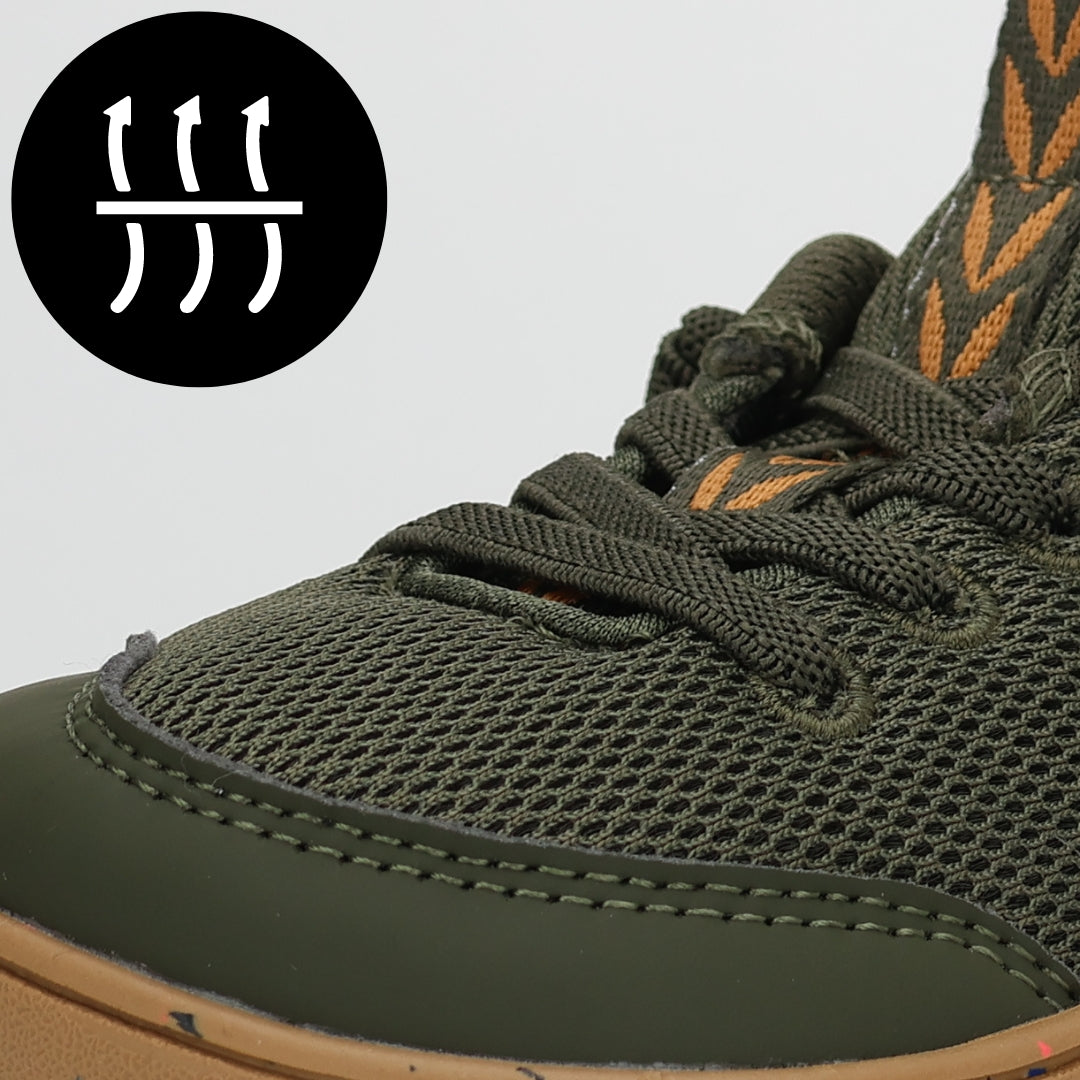
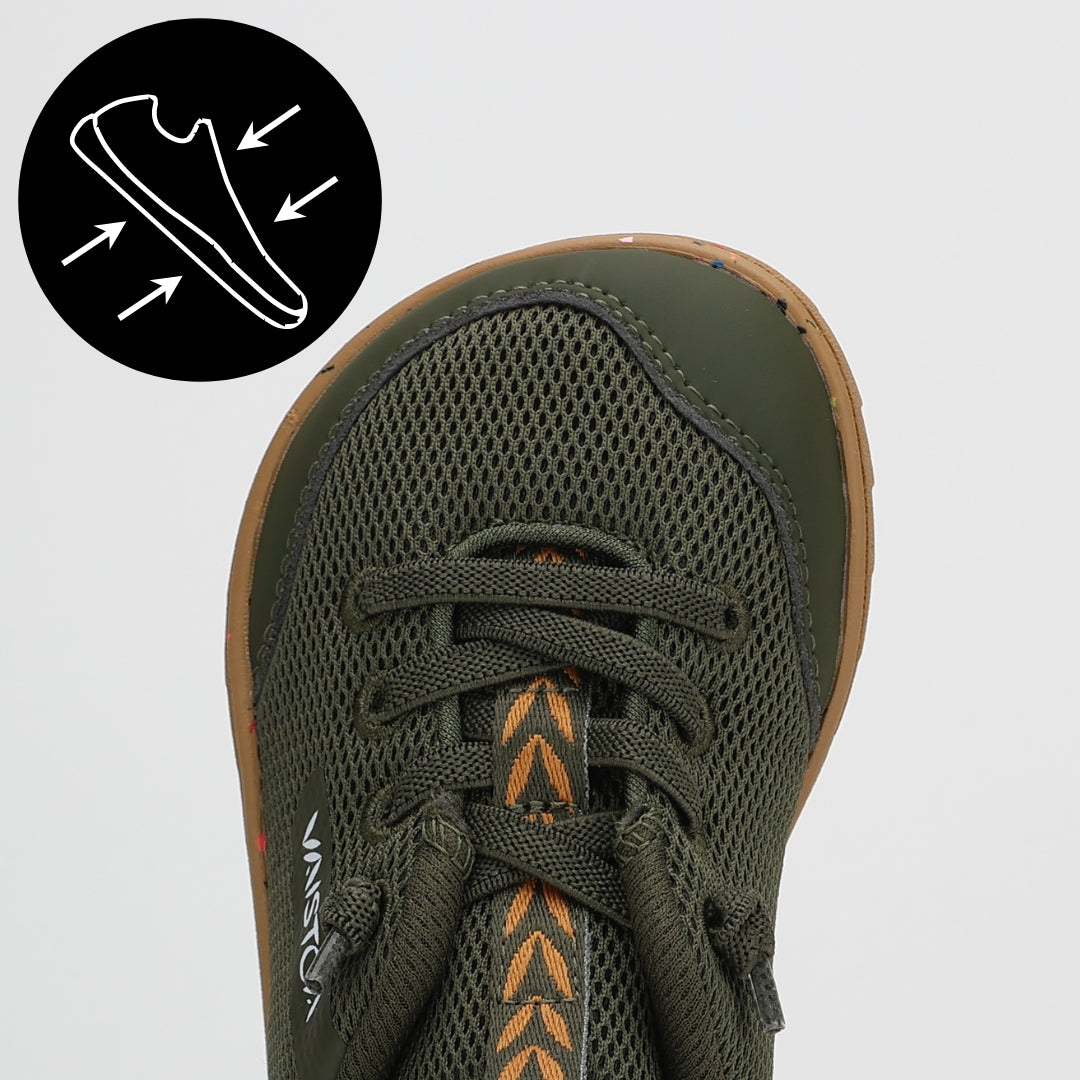
No-Tie Elastic Laces
Lightweight and Flexible
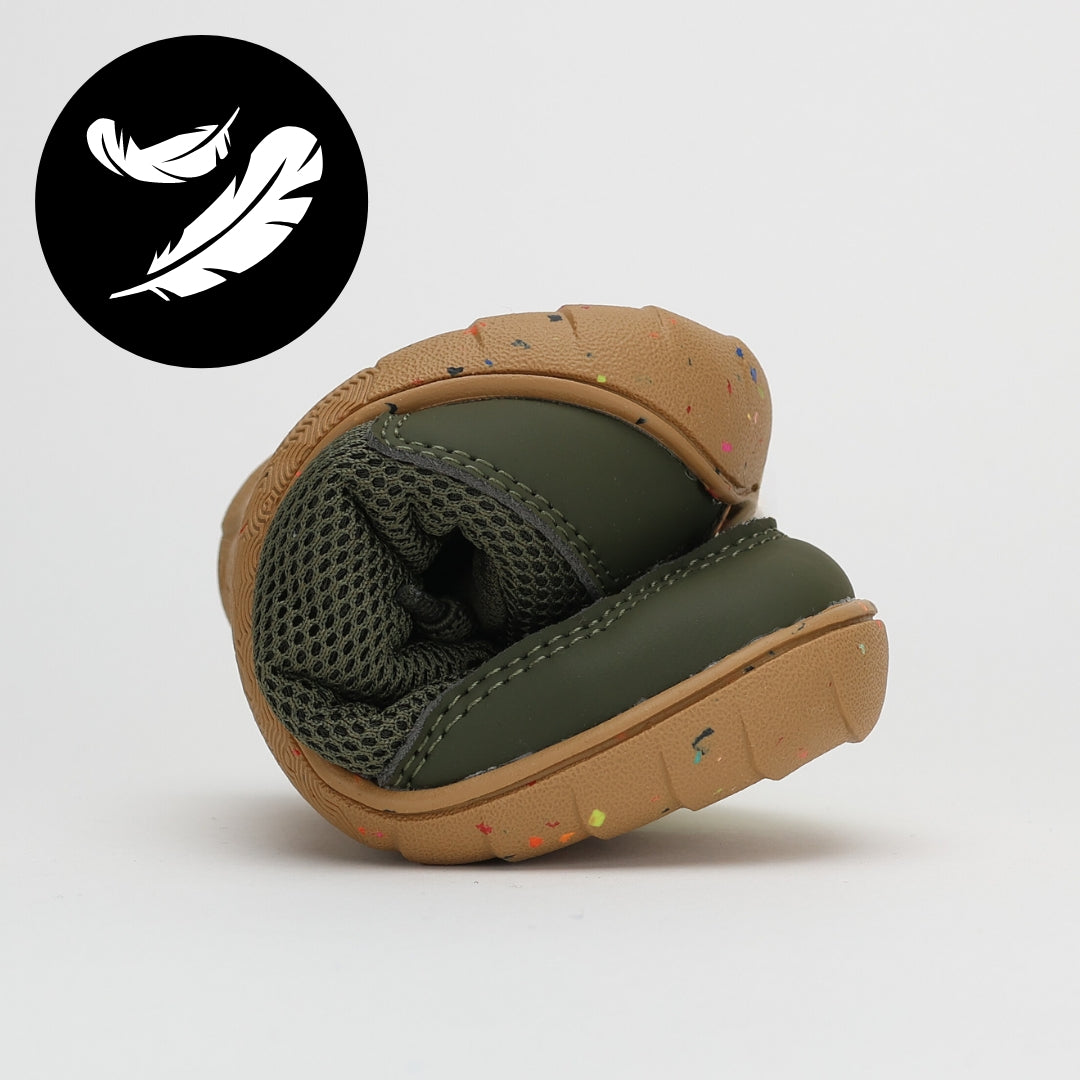
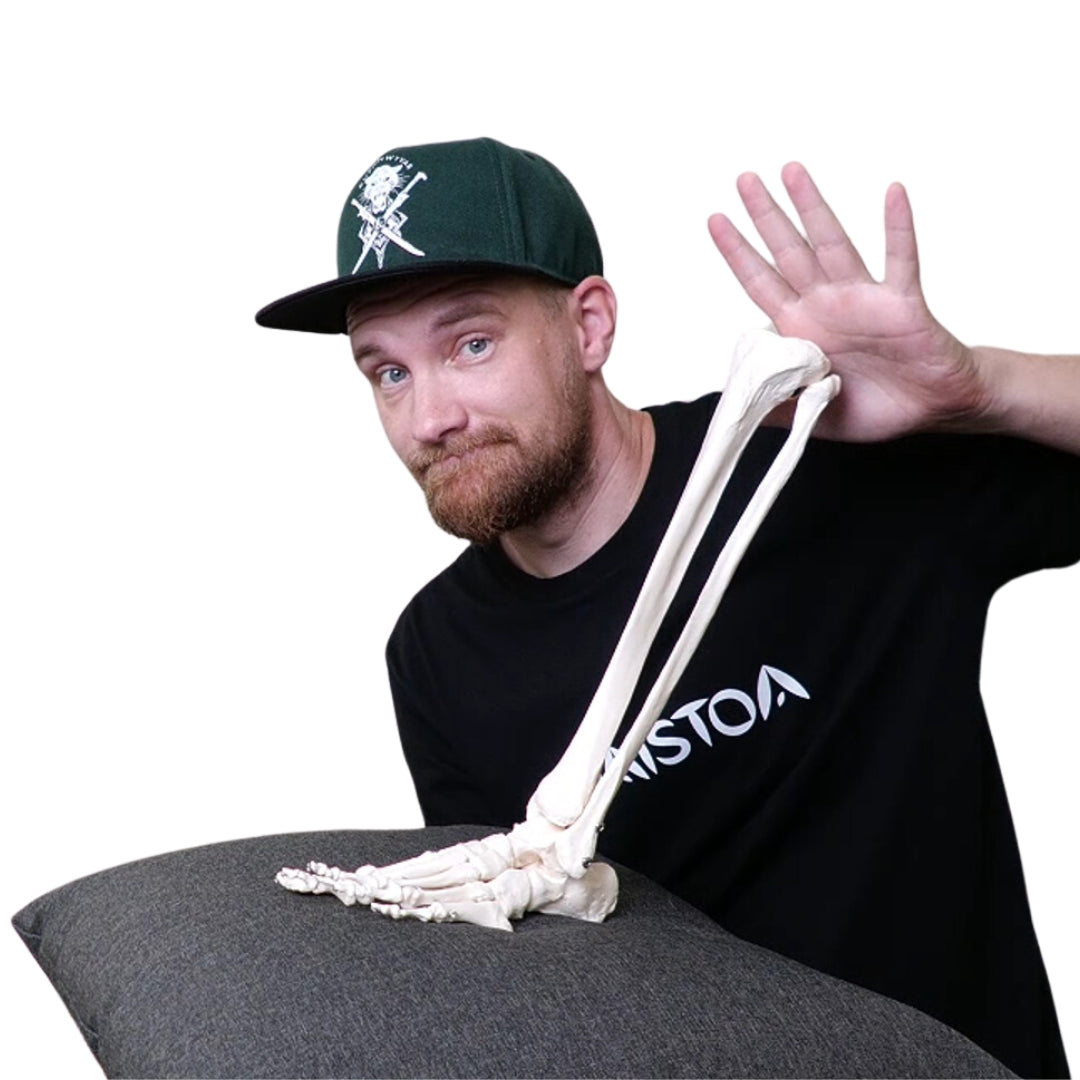
Licensed Physiotherapist
Parents' FAQ for Kids' Barefoot Shoes
You can test the shoes indoors for 90 days. Returns are free, so you can order risk-free and with peace of mind. If you're not completely satisfied, simply return them within 90 days for a full refund. No questions asked.
For detailed information about our return policy, please follow this link.
Barefoot shoes have been around for years and are based on principles of natural movement and foot health. They are not just a trend; they are a step towards healthier footwear choices.
Our barefoot shoes are made from high-quality materials and designed for use in various environments. They are durable, but it’s important to remember that all shoes are consumable items. Barefoot shoes naturally have thinner soles compared to traditional thick-soled shoes. The durability of the soles can vary depending on the level of activity, the environment, and your child's walking style.
Many children with foot problems have found relief with barefoot shoes because they improve foot functionality. However, it’s wise to consult a healthcare professional before making a change if you are unsure.
Barefoot shoes do not provide any support because their purpose is to allow the foot muscles to work while moving. Supported shoes weaken the foot muscles because they don’t get to do their job.
Barefoot shoes allow a child's feet to grow and develop naturally, which is crucial for their overall foot health. Traditional shoes often restrict the natural movement and growth of a child's feet, potentially leading to various foot problems. Barefoot shoes promote natural foot function by providing a wide toe box and a thin, flexible sole that mimics the feeling of being barefoot. This encourages the development of strong, healthy foot muscles and improves balance and coordination.
You may also like
Go back: Barefoot shoes




